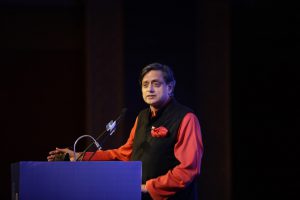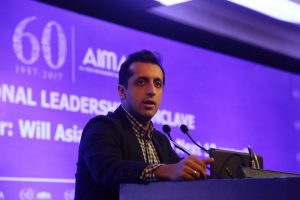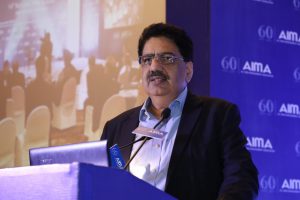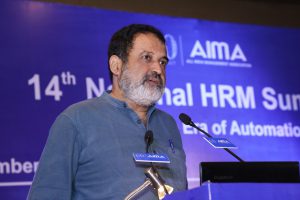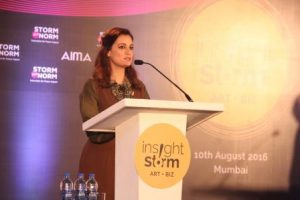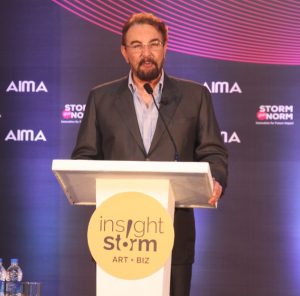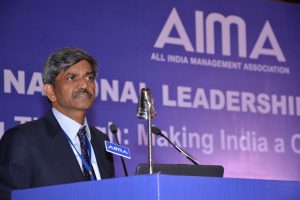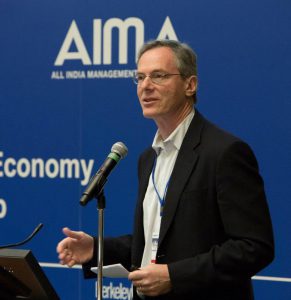AIMA and Storm the Norm co-created ‘Insight Storm’ – a novel format to generate sharp insights delivered powerfully. The Inaugural InsightStorm was organized on 10th August 2016 at Hotel Taj Lands End, Mumbai. This edition of InsightStorm paired up thought leaders from two diverse fields – Art and Business and in a 30-minute session, they shared three pre-created insights around a theme, followed it up with a ‘collision dialogue’ and ended with one fresh insight each.
Below are the key insights & stories shared by Mr Arnab Goswami, Editor-in-chief, Times Now and ET Now at Insight Storm.
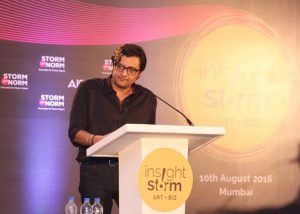
Arnab Goswami sharing his Insights & Stories at InsightStorm
Insight: The rules spoil the journey. We have too many rules which are taught to us at various stages of our career. It limits you. It stops making you imaginative and following the rule makes you less risky a person. That’s negative in the long term, yeah.
Story: The rules spoil the journey because the rule in journalism was – Don’t speak your mind, Don’t talk, just report. Be factual. Don’t go beyond the facts. Just restrict yourself to the facts and keep it to that. That was the rule in 1995. I find that 21 years later that rule is obsolete. Doesn’t mean that facts are immaterial, facts should be compromised, No. But in today’s day and age, opinion counts and the world is opening up. Everyone, everybody has a point of view. Around seven or eight years back, we took the fairly bold decision of changing the editorial nature of the program I do in the way it just got constructed. You can’t have a very structured dialogue so you begin speaking up and you begin giving your own point of view. The joke now is that you end up becoming less an anchor and more one of the panelists and the loudest panelist of them all. But you know it works because it is freer, It is more unfettered, It is not restrained, It helps you open up and so what if it was the Golden Rule in journalism never to express your point of view. That rule wasn’t set in stone. It’s not a religious edict, you changed it. Has journalism become worse for that? I don’t think so because I can’t report a CWG scam and then move on to the next story. I have to report a scam and tell people what I think about it. I can’t report a story of a mother and daughter getting raped you know and just move on to the next story. I feel I think, I emote, I am a citizen, I am a human being and so when I am going to come on air, I am going to be a human being too. So the rule was changed and for me, it has actually made my professional journey, personal journey much more enjoyable which is why I still stand here before you hoping I have another 20 years in this business. If I had just done journalism the way it was taught to me in 95 then I would not be here today and perhaps be retiring so yeah that’s one little story I would like to share.
Continue reading →
